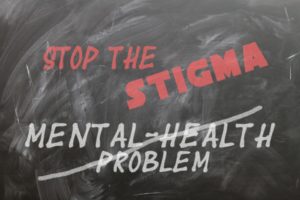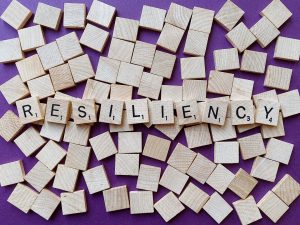Question Bank
Browse our library of surveys here in the MyVoice Question Bank.
Are you 14 to 24 years old and want to join MyVoice to start making your opinions heard? Sign up now.
Want to know more about how MyVoice works? Read our research protocol paper.
- Reflecting on your experiences since March, what have you found most difficult about the COVID-19 pandemic? Why?
- What have you been doing to cope with the pandemic?
- What are you most worried about as the pandemic continues?
- What have you missed out on because of the pandemic and how has it affected you?
- Tell us about something good that has happened to you during the pandemic.
Date: 10/30/2020
- Movies and shows can influence our thoughts, emotions, or behaviors. Is there a moment from a movie or show that impacted your mental health in a positive way? How?
- Is there a moment from a movie or show that impacted your mental health in a negative way? How?
- Have you ever mimicked the behavior of a movie/show character? Tell us who and in what way.
- Are there any movies/shows that you think help prevent suicidal thoughts or behaviors for viewers? If yes, which movie/shows and why?
- Are there any movies/shows that you think promote suicidal thoughts or behaviors? If yes, which movie/shows and why?
- What are your education/career goals for the future?
- Does thinking about your plans for the future make you feel stressed? Tell us about it!
- Who or what influences how stressed you feel (if at all) about the future?
- What are some ways (healthy or unhealthy) you manage stress about the future?
- How does stress about your future plans impact your relationships with others (family, friends, peers)?
- How do you feel when you think about your future (the next 5 years)? Why?
- How have your future plans been impacted by the COVID pandemic?
- Some people feel anxiety about their future. Has your level of anxiety about your future changed from before the COVID pandemic? How?
- What resources were available during the COVID pandemic to help you manage anxiety about your future?
- What would help support youth in managing anxiety about their future now?
- When we asked MyVoicers about health care, a lot of people brought up mental health. Is mental health care important to you? Tell us more!
- Many people experience emotional and mental health concerns. How would you know when to seek help for an emotional or mental health concern?
- Who would you want to talk to about it? Why?
- What are the reasons that people your age might NOT seek care for an emotional or mental health concern?
- What’s one thing that could improve mental health among people your age?
Date: 10/19/2018
Intro: We want to hear your opinion about health insurance coverage of mental health treatment. A 2010 policy requires that people with health insurance get free mental health treatment.
- On a scale from 1-5, how important is this policy to you? (1= Not at all, 5= Extremely important)
- Has insurance coverage of mental health treatment helped you or someone you know? Tell us about it!
- It’s voting time! Would you vote to keep this policy, repeal it, or change it? Why?
Dates: 11/29/2017 – 5/19/2018
- We learned from you that stigma (judgement/embarrassment) plays a role in youth mental health issues. Who or what makes youth feel this stigma? Why?
- How does stigma affect someone’s ability to get help for mental health issues?
- What would make it easier for youth to get help for mental health issues?
- What do you think YOUTH could do to decrease stigma around mental health issues?
- What do you think ADULTS could do to decrease stigma around mental health issues?
Date: 3/29/2019
Intro: We have questions for you about health insurance coverage of treatment for substance abuse. This includes alcohol and drug use. Right now, treatment for substance abuse is free for anyone who has health insurance.
- On a scale from 1-5, how important is this policy to you? (1= Not at all, 5= Extremely important)
- Has coverage of substance use disorders helped you or someone you know? Tell us about it!
- Time to vote! Would you vote to keep this policy, repeal it, or change it? Why?
- This week is about stress and resilience. When you are stressed, what do you do (both healthy and unhealthy) to manage the stress?
- Resilience means adapting to challenges/ongoing stress. Who or what helps you to be resilient when facing challenges?
- Tell us about a specific time where you showed resilience. What did you learn?
- What would help you or people your age to be more resilient?
- Sometimes things in your community or in society can get in the way of resilience. What makes it harder for you to be resilient?
Date: 10/16/2020
Reflecting on your experiences since March, what have you found most difficult about the COVID-19 pandemic? Why?
What have you been doing to cope with the pandemic?
What are you most worried about as the pandemic continues?
What have you missed out on because of the pandemic and how has it affected you?
Tell us about something good that has happened to you during the pandemic.
Date: 10/30/2020
Movies and shows can influence our thoughts, emotions, or behaviors. Is there a moment from a movie or show that impacted your mental health in a positive way? How?
Is there a moment from a movie or show that impacted your mental health in a negative way? How?
Have you ever mimicked the behavior of a movie/show character? Tell us who and in what way.
Are there any movies/shows that you think help prevent suicidal thoughts or behaviors for viewers? If yes, which movie/shows and why?
Are there any movies/shows that you think promote suicidal thoughts or behaviors? If yes, which movie/shows and why?
Date: 4/14/23
What are your education/career goals for the future?
Does thinking about your plans for the future make you feel stressed? Tell us about it!
Who or what influences how stressed you feel (if at all) about the future?
What are some ways (healthy or unhealthy) you manage stress about the future?
How does stress about your future plans impact your relationships with others (family, friends, peers)?
Date: 6/3/22
How do you feel when you think about your future (the next 5 years)? Why?
How have your future plans been impacted by the COVID pandemic?
Some people feel anxiety about their future. Has your level of anxiety about your future changed from before the COVID pandemic? How?
What resources were available during the COVID pandemic to help you manage anxiety about your future?
What would help support youth in managing anxiety about their future now?
Date: 12/2/22
When we asked MyVoicers about health care, a lot of people brought up mental health. Is mental health care important to you? Tell us more!
Many people experience emotional and mental health concerns. How would you know when to seek help for an emotional or mental health concern?
Who would you want to talk to about it? Why?
What are the reasons that people your age might NOT seek care for an emotional or mental health concern?
What’s one thing that could improve mental health among people your age?
Date: 10/19/2018
Intro: We want to hear your opinion about health insurance coverage of mental health treatment. A 2010 policy requires that people with health insurance get free mental health treatment.
On a scale from 1-5, how important is this policy to you? (1= Not at all, 5= Extremely important)
Has insurance coverage of mental health treatment helped you or someone you know? Tell us about it!
It’s voting time! Would you vote to keep this policy, repeal it, or change it? Why?
Dates: 11/29/2017 – 5/19/2018
We learned from you that stigma (judgement/embarrassment) plays a role in youth mental health issues. Who or what makes youth feel this stigma? Why?
How does stigma affect someone’s ability to get help for mental health issues?
What would make it easier for youth to get help for mental health issues?
What do you think YOUTH could do to decrease stigma around mental health issues?
What do you think ADULTS could do to decrease stigma around mental health issues?
Date: 3/29/2019
Intro: We have questions for you about health insurance coverage of treatment for substance abuse. This includes alcohol and drug use. Right now, treatment for substance abuse is free for anyone who has health insurance.
On a scale from 1-5, how important is this policy to you? (1= Not at all, 5= Extremely important)
Has coverage of substance use disorders helped you or someone you know? Tell us about it!
Time to vote! Would you vote to keep this policy, repeal it, or change it? Why?
Dates: 11/22/2017 – 5/12/2018
This week is about stress and resilience. When you are stressed, what do you do (both healthy and unhealthy) to manage the stress?
Resilience means adapting to challenges/ongoing stress. Who or what helps you to be resilient when facing challenges?
Tell us about a specific time where you showed resilience. What did you learn?
What would help you or people your age to be more resilient?
Sometimes things in your community or in society can get in the way of resilience. What makes it harder for you to be resilient?
Date: 10/16/2020









